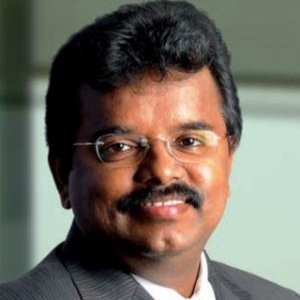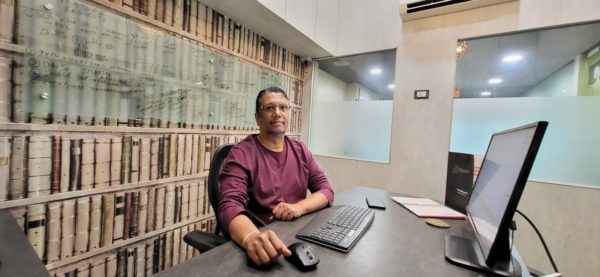The global race for Artificial Intelligence dominance is not just a technological sprint; it’s a complex geopolitical marathon where infrastructure, resources, and strategic alliances are proving to be decisive factors. In this high-stakes competition, the United Arab Emirates (UAE) has rapidly emerged as a pivotal player, solidifying its position as a global AI infrastructure hub through a series of shrewd moves and, notably, a landmark agreement with the United States. This strategic pivot marks a significant win for the Emirates, showcasing a deliberate effort to diversify its economy and enhance its geopolitical influence, while highlighting a perceptible shift in the global AI power dynamics.
A Confluence of Strengths: The US-UAE AI Alliance
For decades, the U.S. and the UAE have maintained a strong alliance, but their recent collaboration in AI represents a new, high-value chapter. The synergy is clear: the U.S. boasts unparalleled leadership in semiconductor technology and advanced AI research, while the UAE offers abundant, low-cost energy resources – a critical component for powering the energy-intensive AI data centers and supercomputing clusters. This strategic alignment has already attracted hundreds of billions of dollars in investment, with major players like Nvidia, Microsoft, OpenAI, and the UAE’s own G42, Mubadala, and MGX (a technology investment company under Abu Dhabi’s sovereign wealth fund, Mubadala) pouring capital into this burgeoning infrastructure.
A significant development, as announced by OpenAI in May 2025, is the “Stargate UAE” initiative. This marks the first international deployment of OpenAI’s ambitious Stargate project, which aims to build frontier-scale compute capacity globally. The initial phase includes a 1GW Stargate UAE cluster in Abu Dhabi, with a portion expected to go live as early as 2026. This isn’t just a commercial deal; it’s a partnership developed in close coordination with the U.S. government, aligning with broader strategic objectives to bolster compute supply chains and foster AI development rooted in democratic values and open markets. Cisco, for instance, has also joined this initiative, providing crucial networking, security, and observability solutions.
Beyond Oil: UAE’s Vision for AI Leadership
The UAE’s foray into becoming a global AI hub is far from accidental; it’s a cornerstone of its national vision to diversify its economy beyond oil dependency and significantly enhance its geopolitical standing. The country’s leadership envisions AI not just as a technology, but as a transformative force capable of reshaping entire industries, from energy and healthcare to finance and defense. AI is projected to contribute a staggering US$96 billion to the UAE economy by 2030, making up 14% of its GDP, according to New Economy Expert.
Key to this strategy is the Artificial Intelligence and Advanced Technology Council (AIATC), established in January 2024, overseeing substantial financing, investment, and research plans. The UAE’s commitment is also evident in its bold move to develop its own large language models. The Technology Innovation Institute (TII) in Abu Dhabi launched Falcon AI, an advanced LLM that has gained global recognition for its performance and open-source nature, often outperforming proprietary models on benchmarks like Hugging Face’s Open LLM Leaderboard. This independent LLM capability is a significant step towards achieving dominance in the AI market within the next decade, potentially bolstering the UAE’s diplomatic leverage and influence in global tech governance. Furthermore, the strategic divestment by the UAE’s G42 from Chinese companies underscores the nation’s calculated alignment with the U.S. to ensure access to cutting-edge Western technology and avoid sanctions.
The Geopolitical Chessboard: Countering Rivalry
From the U.S. perspective, this deepened partnership with the UAE is a critical move in the intensifying global AI race, particularly as a countermeasure to China’s rapid advancements in AI. Washington has been actively working to diversify its tech supply chains and open new markets for its companies, with the Middle East emerging as a crucial region. This collaboration is viewed as a political strategy to strengthen U.S. computational infrastructure and strategically constrain rival technological progress.
OpenAI’s involvement, including the nationwide rollout of ChatGPT in the UAE, directly supports the U.S. objective of disseminating its AI technology globally, rooted in democratic values and fostering secure, responsible AI development. This “OpenAI for Countries” initiative, with Stargate UAE as its pioneering international deployment, aims for a globally distributed, democratically powered AI network. The broader implication is that controlling the infrastructure and foundational models of AI offers significant geopolitical leverage, influencing future economic prosperity and national security.
A New Era of AI Diplomacy
The UAE’s emergence as a global AI infrastructure hub is a testament to its forward-thinking strategic vision and its agility in navigating complex geopolitical currents. The partnership with the U.S. signifies more than just a commercial transaction; it represents a deepening of strategic ties in a domain that will define 21st-century power. As the global AI landscape continues to shift, with the East, particularly the UAE, gaining significant momentum, these alliances will be crucial in shaping the future of AI development, governance, and its pervasive impact on societies worldwide. The Emirates’ “strategic win” is not merely about technological prowess, but about positioning itself at the very nexus of global innovation and influence.













